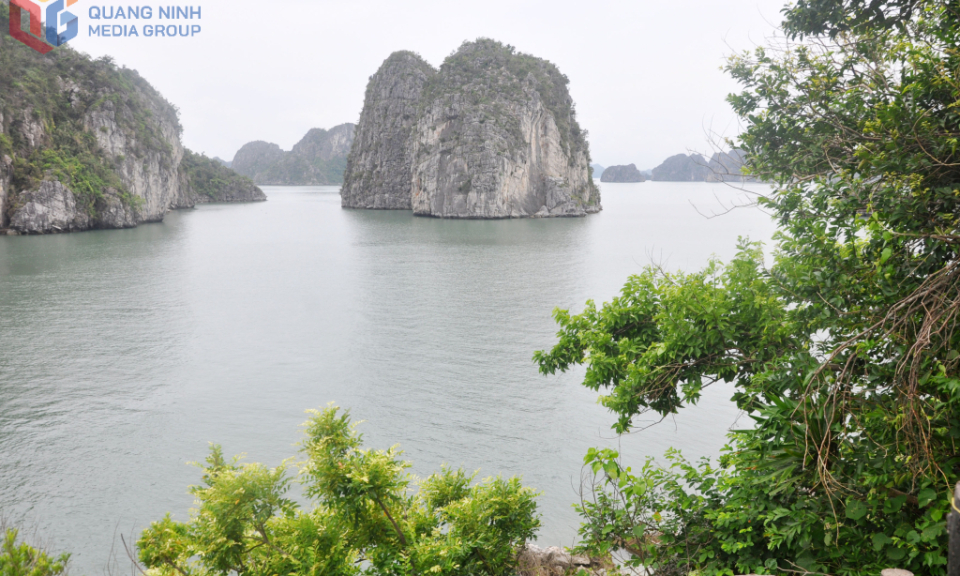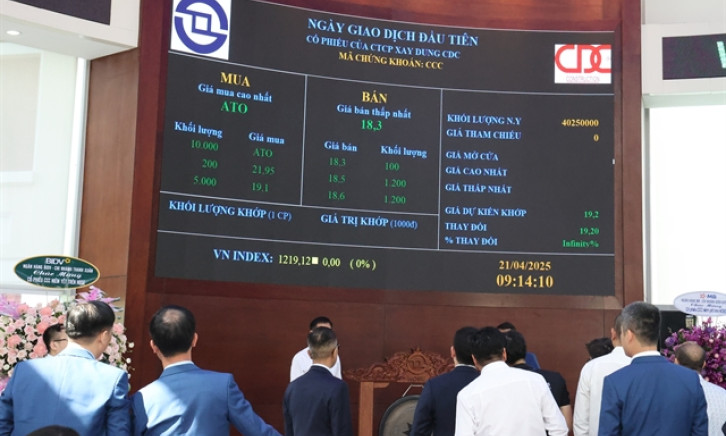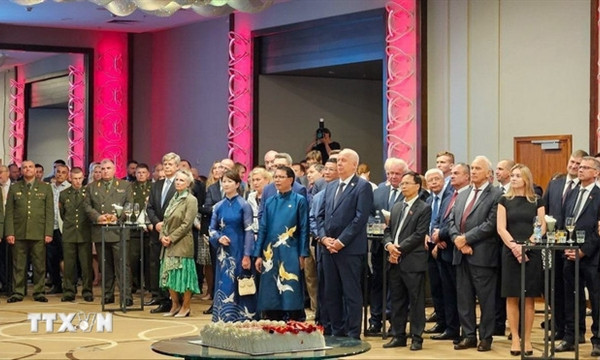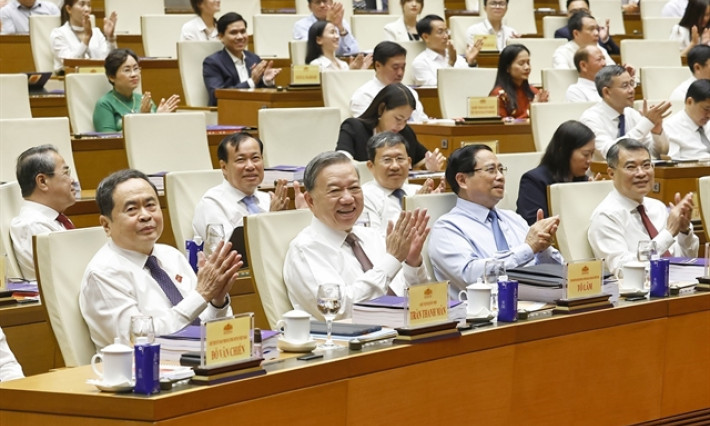PM urges swiftly refine mechanisms to facilitate green development
Prime Minister Phạm Minh Chính stressed the necessity of establishing new governance methods to manage green transformation, green growth and circular economic development.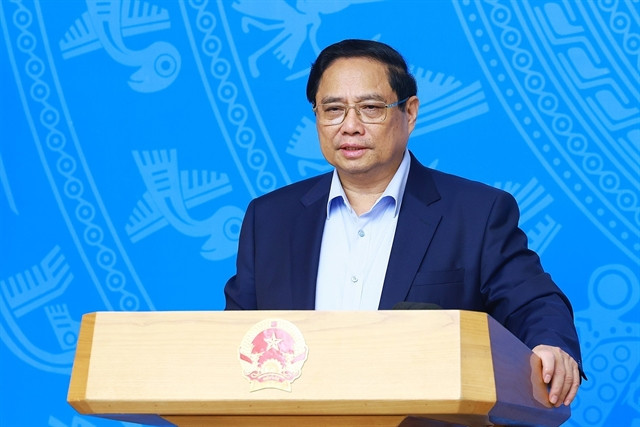
Prime Minister Phạm Minh Chính urged the National Steering Committee to implement Việt Nam’s commitments at COP26 and swiftly refine institutional mechanisms and policy frameworks for mobilising resources, particularly through public-private partnerships, to facilitate green development.
During the fifth session of the national steering committee, held on Wednesday, PM Chính emphasised the need to enhance the mechanism for attracting non-State resources towards green transformation, green growth, low-carbon economic development and adaptation to climate change.
He highlighted the importance of advancing scientific research, technology development and innovation to bolster the renewable energy sector in the country, including fostering the auxiliary industry and equipment for producing renewable energy, biomass energy, green hydrogen, green ammonia, and technologies for carbon capture, utilisation and storage.
The PM stressed the necessity of establishing new governance methods to manage green transformation, green growth and circular economic development.
He also called for intensified international cooperation to mobilise resources for fulfilling the commitments made at COP26 and achieving a just energy transition. This would involve focusing on training and developing high-quality human resources and adopting new technologies to realise green transformation and equitable energy transition goals.
Specific tasks
Ministries and sectors must continue to execute the tasks outlined in the Action Plan for implementing COP26 results, approved by the Prime Minister.
The Ministry of Industry and Trade was tasked with coordinating with relevant ministries to review and select projects for immediate implementation under the Just Energy Transition Partnership (JETP) and the Asia Zero Emission Community (AZEC).
The ministry must also finalise the approval for the Smart Grid Development Plan in Việt Nam for the period 2023-30, with a vision towards 2045; incentives for rooftop solar self-consumption projects; and develop a comprehensive framework for a Carbon Border Adjustment Mechanism (CBAM).
Additionally, they should expedite the internal procedures necessary for Việt Nam to become a member of the International Solar Alliance (ISA) and continue to explore proposals for participation in the International Renewable Energy Agency (IRENA).
The Ministry of Agriculture and Rural Development had to implement the Declaration on Sustainable Agriculture, Resilient Food Systems, and Climate Action, particularly by 2030, by developing 1 million hectares of high-quality, low-emission rice cultivation in the Mekong Delta.
It had to finalise procedures for Việt Nam's entry into the Food and Agriculture for Sustainable Transformation Initiative (FAST).
The Ministry of Transport was assigned to lead and coordinate the implementation of the Green Energy Transition Action Programme, which aims to reduce carbon and methane emissions in the transport sector.
The ministry must propose mechanisms and policies to support the transition to electric vehicles in collaboration with relevant ministries and agencies.
The Ministry of Planning and Investment was told to continue researching and developing a green economic sector system and incentive mechanisms.
Meanwhile, the Ministry of Finance and the State Bank of Việt Nam were required to refine proposals for mobilising green finance for development, ensuring feasibility, efficacy and alignment with international practices as well as developing mechanisms to support the capital and green bond markets.
The Ministry of Labour, Invalids and Social Affairs was ordered to establish programmes to support job transitions, create green jobs and develop sustainable livelihoods, particularly for groups affected during the economic transition.
The Ministry of Science and Technology was requested to prioritise resources for scientific and technological tasks related to climate change response, including implementing the national scientific and technological programme aimed at achieving net-zero emissions.
The Ministry of Information and Communications, alongside media outlets, was urged to increase awareness about green development and climate change adaptation.
Regarding the implementation of the JETP declaration, Chính agreed to proceed with the monitoring and evaluation framework for JETP and the prioritisation of projects under JETP. He also agreed to implement eight specific projects.
He called for refining institutional policies related to JETP implementation to inform partners effectively.
He said Việt Nam's commitment to COP26 and participation in the JETP Declaration represented a correct strategy and an opportunity for the nation’s development.
Therefore, there must be a concerted effort to mobilise all resources, with society and citizens participating actively while connecting with international funding sources, green finance, and technology transfer from countries and international organisations.
The PM said: “Climate change is a global issue affecting all citizens and businesses. Hence, a global, inclusive approach is required, emphasising multilateralism and international cooperation.
"Policies must centre on the populace and businesses, ensuring that they benefit from the outcomes."
Regarding the AZEC, he requested that the ministries prepare specific programmes and projects for implementation.
An irreversible trend
PM Chính said: “Climate change is increasingly extreme, with widespread impacts globally, and addressing climate change through green, low-emission development is an irreversible trend for humanity.”
He also added that despite recent challenges, Việt Nam managed to promote growth, control inflation, and advance the digital economy, green economy, and circular economy, maintaining macroeconomic stability and ensuring large balances, with monetary and fiscal policies gradually shifting towards sustainability.
He reflected on Việt Nam’s commitments at COP26, there had been a notable change in awareness and a growing responsibility among citizens for environmental protection, emissions reduction and climate change response.
“Việt Nam has emerged as a shining example of international commitments to climate change response,” he added.
The commitments made at COP26 had quickly been integrated into legal frameworks, policies and strategies for coherent implementation.
International cooperation in green development and energy transition had intensified, making Việt Nam more attractive to foreign investors in climate change response and energy transition projects.
Also at the meeting, PM Chính pointed out several limitations, such as uneven implementation of climate change response and energy transition tasks, delays in certain tasks, particularly in policy development for green growth, and a need for more effective execution of the outlined tasks in the Action Plan for COP26.


